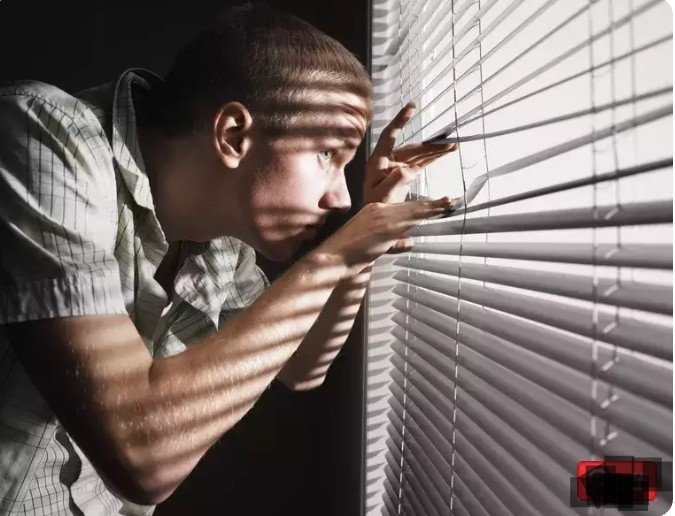What is paranoia?
Paranoia is thinking and feeling as if you are under threat even though there is no (or very little) evidence that you are. Paranoid thoughts can also be described as delusions. There are lots of different kinds of threat you might be scared and worried about.
“In paranoia, your fears become amplified and everyone you meet becomes drawn into that web. You become the centre of a threatening universe”.

Things that might make you paranoid;
Everyone will have a different experience of paranoia.
But here are some examples of common types of paranoid thoughts.
You might think that:
• You are being talked about behind your back or watched by people or organizations (either on or offline)
• Other people are trying to make you look bad or exclude you
• You are at risk of being physically harmed or killed
• People are using hints and double meanings to secretly threaten you or make you feel bad
• Other people are deliberately trying to upset or irritate you
“I find it really hard to trust people as my head tells me they're out to get me”.
Most people have paranoid thoughts about threats or harm to themselves but you can also have paranoid thoughts about threats or harm to other people, to your culture or to society as a whole.
What about justified suspicions?
Not all suspicious thoughts are paranoid. We all have good reason to be suspicious sometimes. Justified suspicions are suspicions that you have evidence for. For example, if lots of people have been mugged on your street, it is not paranoid to think that you might be mugged too and take care when walking through your area. Justified suspicions can help keep you safe.
Is paranoia a mental health problem?
Paranoia is a symptom of some mental health problems and not a diagnosis itself.
Paranoid thoughts can be anything from very mild to very severe and these experiences can be quite different.
This depends on how much:
• You believe the paranoid thoughts
• You think about the paranoid thoughts
• The paranoid thoughts upset you
• The paranoid thoughts interfere with your everyday life.
Isolation
Paranoid thoughts can make you feel alone. You might feel as if no one understands you, and it can be hard when other people don't believe what feels very real to you.
If you avoid people or stay indoors a lot, you may feel even more isolated.
“Paranoia is a very lonely and very frightening illness – it strips people of their confidence”.
Worry and sadness
You might feel anxious and worried about your paranoid thoughts or feel low and sad about what they mean and how they affect your life.
Anxiety and low mood might make you more vulnerable to paranoid thoughts. Research has also shown that people who are more anxious or have low mood are more distressed by paranoid thoughts.
How can I help myself?
If you are experiencing paranoid thoughts – or think that you might be – there are things you can do to help yourself cope. You may choose to try them on their own or alongside treatment
Keep a diary
You may find it helpful to keep a diary recording, for example:
• What your paranoid thoughts are
• How you feel about them
• Your sleep
Learn to relax
• Try mindfulness. There is some evidence that mindfulness can help reduce mild paranoia.
• Manage your stress. This can help you deal better with pressure and build resilience.
• Try some relaxation techniques. Relaxation can help you look after your well being when you are feeling stressed, anxious or busy.
Look after yourself
• Try to get enough sleep. Sleep can give you the energy to cope with difficult feelings and experiences.
• Think about your diet. Eating regularly and keeping your blood sugar stable can make a difference to your mood and energy levels.
• Try to take some exercise. Exercise can be really helpful for your mental well being.
What treatment is available?
If your paranoid thoughts are causing you distress then you may want to seek treatment. You may also be offered treatment for paranoia as part of your treatment for a mental health problem. The first step is usually to visit your GP.
i. Talking treatments
Talking treatments can help you understand your experiences and develop coping strategies to deal with them.
ii. Cognitive behavioral therapy
The most common form of talking treatment for paranoia is cognitive behavioral therapy (CBT). During CBT, you will examine the way you think and the evidence for your beliefs and look for different possible Interpretations. CBT can also help reduce worry and anxiety that may influence and increase feelings of paranoia. THANKS
I was once a victim (being paranoid) i noticed most of the time i'm always in a very low mood and this can cause loneliness and isolation of self (being indoor ) not knowing i was creating anxiety and fear, i don't even talk much i was known as too gentle guy afraid of talking much because someone might shut me up. Then thanks to the treatment, i treated myself.
we give God the glory
#source www.mind.org.uk/information-support/types-of-mental-health-problems/paranoia/treatment/#.XAxbT0ko_qA
Source
Copying/Pasting full or partial texts without adding anything original is frowned upon by the community. Repeated copy/paste posts could be considered spam. Spam is discouraged by the community, and may result in action from the cheetah bot.
More information and tips on sharing content.
If you believe this comment is in error, please contact us in #disputes on Discord
CONGRATULATIONS YOUR POST WAS SELECTED FOR @WAFRICA SUNDAY CURATION
https://steemit.com/africa/@wafrica/4xzmxk-wafrica-sunday-curation
signed @jeaniepearl
Thank you